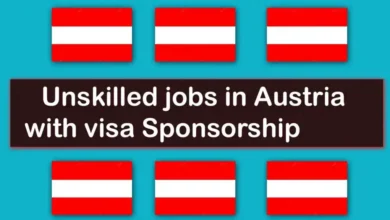The Erasmus+ Program Scholarships – Fully Funded Scholarship 2024 Without Ielts
Erasmus+ provides scholarships for participants who want to study, work, volunteer, teach, or train abroad. The scholarships are designed to cover some or all of the costs associated with the mobility activity, such as travel, accommodation, and subsistence. The amount of the scholarship depends on several factors, including the type of activity, the country of origin and destination, and the duration of the mobility period.
Students can apply for an Erasmus+ scholarship to study abroad for a period of 3 to 12 months. Scholarships for students are typically awarded by their home institutions, and the amount of the scholarship is based on the cost of living in the host country.
Teachers and trainers can also apply for an Erasmus+ scholarship to teach or train abroad for a period of 2 to 2 weeks. Scholarships for teachers and trainers are also typically awarded by their home institutions, and the amount of the scholarship is based on the cost of living in the host country.
Young people and sportspeople can apply for an Erasmus+ scholarship to participate in youth exchanges, training courses, and volunteering activities abroad. Scholarships for young people and sportspeople are typically awarded by the organizations responsible for mobility activities, and the amount of the scholarship depends on the type of activity and the cost of living in the host country.
In summary, the Erasmus+ program provides scholarships to support the mobility of individuals who want to study, work, volunteer, teach, or train abroad. The scholarships are designed to cover some or all of the costs associated with the mobility activity, and the amount of the scholarship depends on several factors, including the type of activity, the country of origin and destination, and the duration of the mobility period.
Check: Fully Funded Education in Canada – No IELTS Required
The Erasmus+ Program Scholarships Eligibility criteria:
The eligibility criteria for Erasmus+ scholarships vary depending on the type of mobility activity, but some general criteria apply to all participants. The following are some of the most common eligibility criteria for Erasmus+ scholarships:
- Citizenship: Participants must be citizens of an EU member state, or of a participating country in the Erasmus+ program.
- Age: There are age limits for some types of mobility activities. For example, students must be between 18 and 35 years old to participate in a study period abroad.
- Language proficiency: Participants must have a good knowledge of the language of the host country, or be willing to acquire it.
- Studies: Students must be enrolled in a higher education institution, and must have completed at least one year of studies before the start of the mobility period.
- Work: Teachers, trainers, and young people participating in work-based mobility activities must be employed by an organization or institution.
- Motivation: Participants must be motivated to participate in the mobility activity and must have a clear understanding of the objectives and benefits of the program.
In addition to these general criteria, there may be specific eligibility criteria for each type of mobility activity. For example, young people participating in youth exchanges must be between 13 and 30 years old, and sportspeople participating in training courses must be affiliated with a sports club or federation.
It is important to note that the eligibility criteria for Erasmus+ scholarships are subject to change, and participants are advised to consult the latest information and guidelines available on the Erasmus+ website.
The official website for the Erasmus+ program is the European Commission’s Erasmus+ website, which can be found at:
https://ec.europa.eu/programmes/erasmus-plus/
This website provides comprehensive information about the program, including its goals, funding opportunities, and eligibility criteria. It also provides detailed information about the different types of mobility activities supported by the program, such as study periods, work placements, youth exchanges, and volunteering activities.
In addition to information about the program, the website provides a range of resources and tools for participants, including a database of participating institutions, guidelines for applicants, and a selection of best practices and success stories.
The website is regularly updated with the latest information and news about the program and is an essential resource for anyone interested in participating in the Erasmus+ program.



